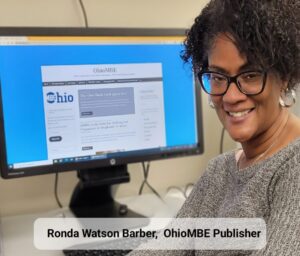By Ronda Watson Barber
OhioMBE Publisher
In Columbus, Ohio, the City Council’s recent proposal to include non-citizens in its certification program has sparked a significant debate, particularly among advocates for Black-owned businesses. As a staunch supporter of Black business interests, I find this move concerning. The certification programs were initially established as a response to the historical discrimination faced by Black businesses in dealings with the city. These programs are a testament to the struggles and protests of the descendants of enslaved Africans, who have tirelessly fought for fair access to government contracting opportunities..
The proposed inclusion of groups without a history of such discrimination feels like slap in the face to Black Americans who continue to face marginalization. It appears that everyone, except Black people, is reaping the benefits of the Civil Rights Movement—a movement for which Black individuals have made immense sacrifices. A glaring example of this imbalance is evident in the City of Columbus, where white women are the primary beneficiaries of the certification program. In stark contrast, the spending on Black women-owned businesses is notably low, as highlighted by the data on Columbus’ Supplier Scorecard.
The hard-won victories of Black advocates seem to disproportionately benefit white households, raising questions about the City of Columbus’s commitment to its Black residents, particularly Black women. A taxpayer-funded disparity study provided the city with a clear roadmap to achieve equity, highlighting past injustices and offering actionable recommendations. Yet, the Mayor and City Council appear to be veering away from this expert guidance, potentially exposing taxpayers to legal challenges for not adhering to the study’s findings.
Until there is tangible equity in the city’s purchasing practices, it is imperative that no additional groups be included in the certification program. The focus must remain on rectifying the imbalances faced by Black businesses in Ohio’s most populous city.
just my thoughts
Discover more from OhioMBE
Subscribe to get the latest posts sent to your email.
